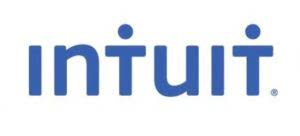
This accounts for the gradual decrease in the value of a non-current asset over time. For example, a business recorded monthly equipment depreciation amounting to $400. The adjusting entry ensures that the amount of supplies used appears as a business expense on the income statement, not as an asset on the balance sheet. The first journal entry is a general one; the journal entry that updates an account in this original transaction is an adjusting entry made before preparing financial statements. On 01 July 2022, ABC needs to record unexpired insurance (or prepaid insurance) which is the current assets. Insurance is the expense that company purchases from the insurance provider in exchange for the insurance service.
- These expenses are also called prepaid costs, prepaid expenditures, or prepayments.
- From the perspective of a business, insurance serves as an assurance that in case of unforeseen losses, its financial interests are protected.
- For instance, if a business pays $1,200 for a one-year insurance policy, the Prepaid Insurance account would be debited for $1,200, and the Cash account would be credited for $1,200.
- After one month, $100 of the prepaid amount has expired, and you have only 11 months of prepaid insurance left.
- On the other hand, suppose a business receives a $1,000 electricity bill on January 31, 2020 for the electricity consumed in January 2020.
- Therefore, the initial payment for an annual insurance policy involves a debit to the “Prepaid Insurance” asset account.
- Learn through real-world case studies and gain insights into the role of FP&A in mergers, acquisitions, and investment strategies.
Debits and Credits in Accounting: With Journal Entry Examples
A business buys one year of Oil And Gas Accounting general liability insurance in advance, for $12,000. The initial entry is a debit of $12,000 to the prepaid insurance (asset) account, and a credit of $12,000 to the cash (asset) account. In each successive month for the next twelve months, there should be a journal entry that debits the insurance expense account and credits the prepaid expenses (asset) account.
- Suppose you make a claim of $5000 in lieu of a fire insurance policy or employment wages act, this is how the figure gets represented as Debit and Credit entries inside your books of accounts.
- Since the Accumulated Depreciation account was credited in the adjusting entry rather than the Equipment account directly, the Equipment account balance remains at $6,000, its cost.
- Welcome to AccountingJournalEntries.com, your ultimate resource for mastering journal entries in accounting.
- Each journal entry consists of at least one debit and one credit, with the total debits equaling the total credits.
- The above journal is only used when the business pays for the owner’s personal insurance out of the business bank account.
Net Income
These expenses are also called prepaid costs, prepaid expenditures, or prepayments. Prepaid expenses are coming in into the firm as it is debited as per the real account rule. As cash is used to is insurance expense a debit or credit make the payment for the prepaid expenses it is credited since cash is going out of the firm. Travel expenses may be broken into separate accounts like airfare, hotels, and travel meals if separate tracking is desired. Travel expense, like most expenses, usually has a debit account balance.
Is insurance an asset in trial balance?
When you incur the obligation to pay for the travel expense, the credit side of the entry is to accounts payable. When you pay the vendors or employee expense reports, then accounts payable is debited (reduced), and the cash account is credited (also reduced). Accountants use debits and credits to record each business transaction and generate financial statements. To accomplish this, accountants use a balancing Double-Entry Bookkeeping System. In practice, computer-based cloud accounting software is used to create and summarize transactions.

Step 2 – At the time when the expense is transferred to “Profit & Loss A/c”. This is a rule of accounting that cannot be broken under any circumstances. Quadra Wealth Investment Advisor LLC is an independent offshore financial planning and wealth management advisory firm based out of Sharjah, UAE. We specialize in wealth management services, not limited to normal balance retirement planning, children’s higher education plans and wealth accumulation plans. In the meantime, your journals look logical and should make the events clear for anyone to follow.
3.1 Adjusting Entries—Deferrals
In your bookkeeping software you will enter the full cost shown on the bill at the date of the bill. These include commercial property cover, product liability cover and employee cover. Here are some common types of insurance that are recommended for a business depending on the type of business they operate. Insurance expense will most often be considered an operating expense, and for many companies, it is tax-deductible.
Recording Monthly Insurance Expenses

These rules ensure that for every debit entry, there is an equal and corresponding credit entry, maintaining the balance of the accounting equation. Insurance accounting involves more than just the recording of premium payments and claim reimbursements. It is also necessary for insurance companies to record changes in unearned premiums when policies lapse or premiums are returned due to cancellation. The initial payment is always debited to prepaid insurance, reflecting the future economic benefit of insurance coverage. In this journal entry, cash is increased (debited) and accounts receivable credited (decreased).

Record prepaid insurance with journal entry
Examples of prepaid expenses include rent, insurance, subscriptions, licenses, and taxes. Accounting prepaid expenses are the expenses that are paid in advance by a business for goods or services that will be received or consumed in the future. Accounting prepaid expenses are recorded as assets in the balance sheet and are expensed in the income statement over the period of benefit. For various account types, debits and credits have different effects. Debits increase asset accounts, such as cash or equipment, and expense accounts.

A- As a Prepaid Asset Account- Debit entry
- The word “expense” implies that the taxes will expire, or be used up, within the month.
- Debits are typically used to decrease revenue accounts, although this is rare and often related to returns or customer allowances.
- Each account in your system (like cash, inventory, or expenses) has its T-account.
- The example is a bill of $1,000 for General Liability insurance and then two payments of $84.
- This is an accounting prepaid expense, as the business pays for the insurance before it receives the benefit.
If cash is received immediately, then the debit side of the entry would be cash instead of accounts receivable. Book Value is what a fixed asset is currently worth, calculated by subtracting an asset’s Accumulated Depreciation balance from its cost. There are two changes that will be made so that the journal entry is CORRECT for depreciation.
